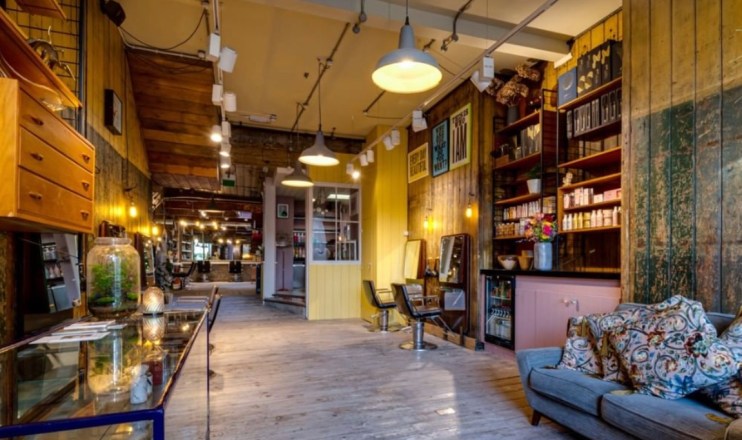City barbers snip opening hours in absence of office workers

Barbers in the City of London say their businesses will never be the same after the uptake of working from home.
Businesses have suffered with the absence of City workers getting lunch break trims and after-work blow drys, all while having to pay London rent.
Even with Omicron measures to ease this week, barbers said they do not anticipate pre-Covid levels of trade returning for a while, if ever.
“Our business went downhill ever since the return of work-from-home rules,” Manoj Solanki, owner of Manoj Men’s Grooming near Mansion House, told CityA.M.
“In a few years time, it will be ok, as office space will be taken up by other businesses. In the meantime, it’s tough with less people in the City.”
Although the City of London Corporation made grants available for ailing firms, Solanki said the Square Mile was still feeling the pinch.
“I’m trying to keep all my staff here everyday but if this continues, I would have to cut their hours,” he said.
It isn’t all doom and gloom, according to British Beauty Council CEO Millie Kendall.
“We fared better than other industries, mainly because the services we provide you cannot get on the internet,” she told CityA.M.
In fact, the beauty sector grew 1.1 per cent between January 2020 and December 2021, compared to the overall retail and leisure sector, which declined 3.3 per cent. This was driven by increasing numbers of micro-businesses in specific categories, with barbershops seeing an 8.9 per cent rise, according to the Local Data Company.
However, salons have been hit hard as practitioners turn away from the high street and look towards mobile businesses, while clients have shied away amid the pandemic.
“Hospitality being in jeopardy in city centres has impacted our sector quite considerably,” Kendall said. “If people are going out more then they are more likely to have a blow dry.”
“[Trade] might not ever be what it was pre-Covid, partly to Brexit – but we have to transition and adapt,” Kendall added. “We knew everything – online shopping, working from home – was going to happen, but the pandemic just accelerated it.”
Adam Reed opened a hair salon just four weeks before the first lockdown, meaning many of his staff members were not eligible for furlough support.
The founder chose to leave the capital and up sticks to Surrey, in order to reduce his own cost of living.
“It’s been horrific, it’s really tough,” Reed, whose salon is a stone’s throw from the Old Spitalfields Market, explained.
“We rely on that footfall from office workers, even if its people coming to meet their partners [after work]. Even now, in Shoredich and Spitafields, a lot of the time, it is empty – but hopefully we’ll see a little bit of a positive change.”
The salon has opted to shut on Sundays and Mondays now while extending hours mid-week.
“Saturdays are even quiet for us now. I don’t think salons are going to have a return to Saturdays being the busy day. I think Thursdays are the new Saturdays for hairdressers,” Reed said.
Small businesses have often felt like their cries for help have landed on deaf ears during the pandemic.
“It has been hugely frustrating as in the lead to Christmas, we were in lockdown by proxy. You [the government] didn’t need to scare the living daylights out of everybody,” Reed said.
Salons in the capital were in a particularly tough position, having to “pay ridiculous rent while not getting any money through,” Reed said. He praised the firm’s landlords, who have negotiated repayment plans with the business. “We have not even made one third of our rent over the past two years,” he explained.
Hairdressers have been keen to stress their importance to the economy, injecting £30bn each year.
For Reed, his sector has a social importance too. “It’s not just cutting har, theres a positive mental health implication and education too.
“We have a community responsibility as a salon and small business to keep our high streets alive,” he said.